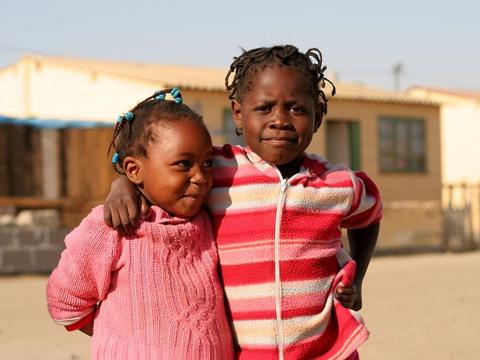By Nasratu Kargbo
The Ministry of Basic and Senior Secondary Education (MBSSE) and Save the Children Sierra Leone have on the 9th June, 2021 launched the Back to school brief on access to learning during COVID -19 response and recovery, to support the National Development Plan. Key issues were discussed, including the impact of COVID-19 on children in Sierra Leone with a focus on education.
Country Director for Save the Children, Heather Marie Campbell explained that Sierra Leone has made a lot of progress in education in recent years and that the launch serves as an opportunity to review the progress of education since it was interrupted by COVID-19.
Over two million children had their learning disrupted for a period of seven months after schools closed in March 2020, according to Save the Children.
Campbel explained that COVID-19 has not only disturbed the learning of the children, but is a gentle reminder for everyone to keep an eye on children in all aspects of their well-being.
She observed that: "COVID-19 has shown the need for more attention to education, especially for most marginalized children".
The country Director explained that despite the efforts by MBSSE and education partners to ensure access to education for all children during the seven months schools were closed, some children were still left out. She stated that was the case of the girl child in hard to reach communities.
|
|
|
According to the brief, this emergency came on top of an existing learning crisis, and that UNESCO in its recent projections for the sustainable Development Goal 4(SDG4) predicts almost no progress on reducing the number of children who are out of school by 2030, meaning millions of children are not learning.
According to the brief, "radio coverage still only reaches 62% of households in Sierra Leone, with remote and poorer communities more likely to miss out".
The Deputy Minister MBSS, Emily Gogra stated that it was an opportunity to share what they have done as a ministry during the break of COVID-19. She explained that there were several challenges during the pandemic which saw the ministry create ways for the children to access education even when they were at home and during lockdowns.
"During the lockdown, before we reopened, we had radio teaching programs; which were supported by a lot of NGOs. We enforced it with active radio teaching to promote accelerated learning", said Gorgra. She explained that just because the country is on lockdown does not mean the children should not access education.
She spoke about their enforcement of handwashing in the different schools that she said took the children time to adjust to, but the children and the stakeholders cooperated in the end.
"We instituted the radical inclusion," said the Minister. She explained that no matter the level or class, girls got pregnant because they have been out of school for a very long time. She stated that they included the radical approach, wherein these pregnant girls were allowed to go to school though a lot of people frowned at this. She added that they as a ministry sensitized the people so that the pregnant girls can go back to school.
The Deputy Minister stated that the radical inclusion brought challenges, especially because tribal heads and chiefs frowned at the policy, so they had to sensitize the chiefs. She said it was not easy because the local leaders felt pregnant girls should be thrown out of school. She explained that it is an injustice for pregnant girls to stay out of school while the boys that impregnated them, stay in school. “Though we do not want them to get pregnant, if they do, let's encourage them", she said.
She spoke about the challenges faced in dealing with the laws that are outdated as contained in the 2004 Education Act and believed some instruments should be added in order to modernize the laws to match up with the dynamic trends of education. She said they are working on improving these outdated policies.
Gorgra mentioned that as a means of helping children in deprived communities, Save the Children supplied solar panels to help the children to study and MBSSE created new classrooms to space the children, and furniture supplied through the aid of several NGOs and the government. "We did this to encourage the children to practice the social distance", the deputy Minister noted.
Access to qualified teachers, according to a press release issued at the brief, "still remains low" especially amongst female teachers, with only 27% serving in primary schools across the country and 14% in secondary schools.
Save the Children, recognized as one of the world's leading organizations for children, has been implementing programs in Sierra Leone since 1999. The organization works directly in five districts in the country; Kailahun, Pujehun, Western Area Urban/Rural and recently Moyamba. The organization said it remains committed to supporting the government of Sierra Leone on its agenda.
Copyright (2021) Politico Online








